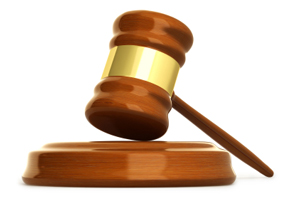
Medical device giant Medtronic (NYSE:MDT) may have a little muscle on its side after the U.S. Solicitor General effectively backed the company in a long-running patent infringement battle against Boston Scientific (NYSE:BSX) that’s set to hit the Supreme Court later this year.
The dispute, which began over cardiac rhythm therapy technology patents, reached the Supreme Court as a debate over which party bears the burden of proof when a patentee, in this case Boston Scientific, claims infringement by a licensee, Medtronic. The Supreme Court will take up the issue during its next session beginning in October.
The Solicitor General this month filed an amicus curiae brief, offering its 2¢ on the case and arguing that a lower court ruled incorrectly that Medtronic bears the burden of proof in demonstrating that its products do not infringe on the patents in question. The patent holder should always bear that responsibility, according to the brief.
Legal analysts, however, warned that the Solicitor General may have failed to take into consideration the unique nature of the litigation and the precedents set by the 2007 Supreme Court decision in a lawsuit between MedImmune and Genentech. The court ruled in that case that a licensee can challenge the validity of a patent without canceling the licensing agreement, shifting to the licensee a significant amount of power during negotiations.
Since Medtronic brought the initial lawsuit while still under a licensing agreement for the CRT patents in question, it created a unique situation that raises questions about who is actually the plaintiff and who is the defendant in this case.
The Solicitor General argued in its brief that lower courts that put the burden of proof on Medtronic forced the company, as the "alleged infringer," in the position of having to demonstrate that it does not violate any given patents. Medtronic would have to effectively "identify and negate every conceivable theory on which the product could infringe." That may be an exaggeration as well as a misrepresentation of the somewhat unique nature of the case, according to attorney Andrew Williams writing for Patent Docs.
"The brief also noted that this is the 1st time since the enactment of the Declaratory Jurisdiction Act that an ‘accused infringer’ has had the burden of proving non-infringement," wrote Williams, who is a partner with McDonnell Boehnen Hulbert & Berghoff LLP. "But the use of the term ‘accused infringer’ in the brief highlights the appropriateness of this argument in this context – the declaratory-judgment plaintiff is a licensee, and therefore is not necessarily being accused of infringing. Rather, the licensee has entered into an agreement by which it has a right to practice the patented technology. Therefore, even though it cannot be presumed that the declaratory-judgment plaintiff has conceded infringement because of the existence of a license, the fact that MedImmune creates a unique situation must be acknowledged."
The patents in question were issued to CRM pioneer Dr. Morton Mower, credited with inventing the technology that ultimately became known as a cardiac resynchronization therapy device. Mirowski Family Ventures owns 2 of the CRT patents, which it exclusively licenses to Guidant Corp., which Boston Scientific acquired in 2006 for an eyebrow-raising $26 billion.
Medtronic in 1991 entered into a sublicense agreement for the patents with Eli Lilly (NYSE:LLY), which owned Guidant at the time. The agreement gave Medtronic leverage to challenge 1 of the patents, which the medical device company began doing in 2003. Since then the various companies involved have been fighting over the validity of 1 of the MFV patents and over Medtronic’s alleged infringement, going round after round in a series of lower courts that further distilled the issue until it hinged on the question of who bears the burden of demonstrating wrongdoing or lack thereof.
Delaware District Court Judge Susan Robinson ruled in April 2011 that the burden rested on the patentee, and last fall Federal Circuit Judges Richard Linn, Alan Lourie and Sharon Prost agreed, concluding that a lower court had mistakenly put the burden of proof on MFV when Medtronic had "disturbed the status quo" with its lawsuit.

